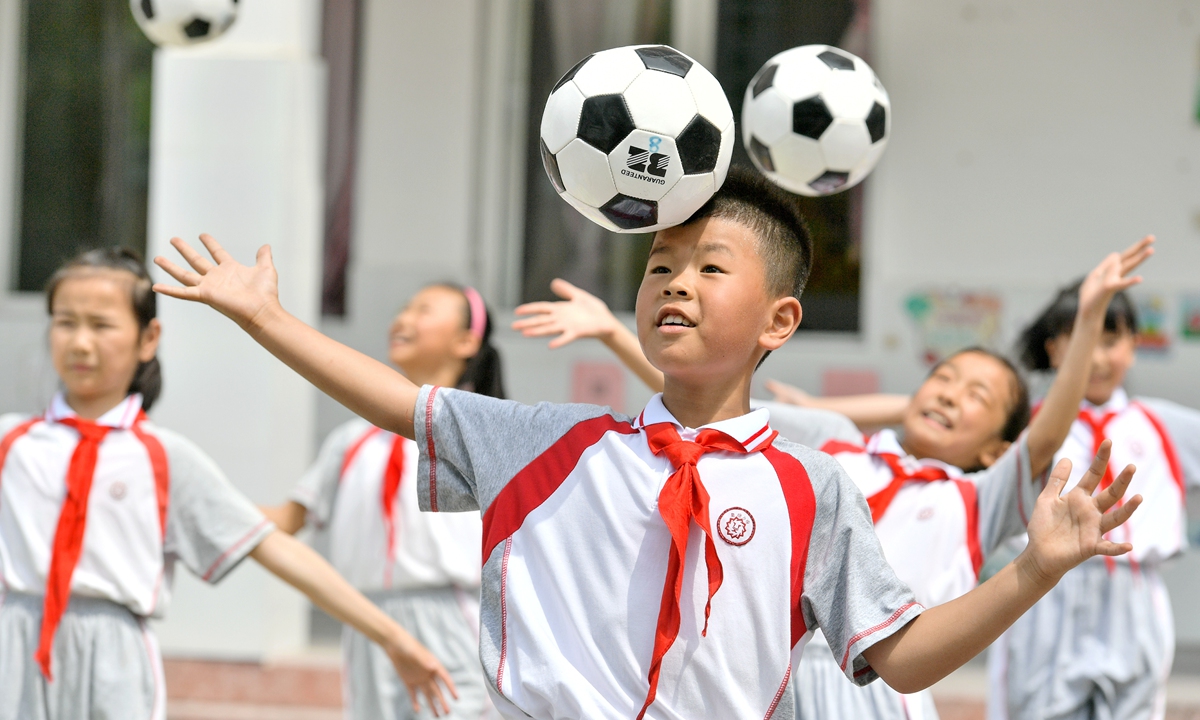
Students play football at a primary school in Huzhou, a city of East China's Zhejiang Province on June 8, 2021. Photo: cnsphoto
Chinese lawmakers approved a revision to the country's Sports Law on June 24, a significant step to improve the high-quality development of sports, in a bid to build the country into a sporting powerhouse.
The revised Law on Physical Culture and Sports was passed at a session of the National People's Congress Standing Committee and will take effect on January 1, 2023. The amendment is the first comprehensive and systematic revision since the law's initial enforcement in 1995.
The length of the revised Sports Law has been greatly expanded and special provisions have been made on content including anti-doping and sports industry, which directly respond to practical problems that have long existed in China's sports industry.
In the revised Sports Law, the third chapter on "School Physical Education" was changed into "Youth and School Sports," which clearly states that "schools must ensure that students take part in not less than one hour of physical exercise every day," addressing China's primary concern of public and youth fitness.
The amendment points out that local governments are responsible for providing sports facilities and activities and appoints a sports advisor system to be implemented nationwide. The law dictates that students are promised at least one hour's daily exercise at school, and public sports venues are encouraged to open to schools for holding mandatory annual sports events.
For professional sports, the chapters of "Competitive Sports," and "Anti-Doping," among others, addressed the issues of protection of athlete's rights, fair competition and development of a professional sports system.
"Sports Industry," "Sports Arbitration" and "Supervision and Management" were added to the Sports Law to regulate the industry and the arbitration system and enhance the effect of sports as a driving force for economic and social development.
The act clearly states that the country will formulate a development plan for the sports industry, expanding its scale and enhancing its vitality to meet the diverse sports needs of the people.
Innovative businesses on sports equipment and services are encouraged to apply for benefits, granted as qualified industry, including subsidies, tax deductions and reduction of rent among others.
China's sports industry has developed rapidly in recent years with a total scale reaching 2.7 trillion yuan ($408 billion) in 2020, and it is expected to reach the target of 5 trillion yuan ($750 billion) in 2025.
Besides, the revision to the Sports Law also allows for countermeasures if any country, region or organization undermines the nation's sovereignty, security, development interests or dignity in international sports events.
China has been pushing for changes to the Sports Law since discussions on the amendment in September 2018, and it has been through three deliberations until the passing of the revised version.
Global Times

